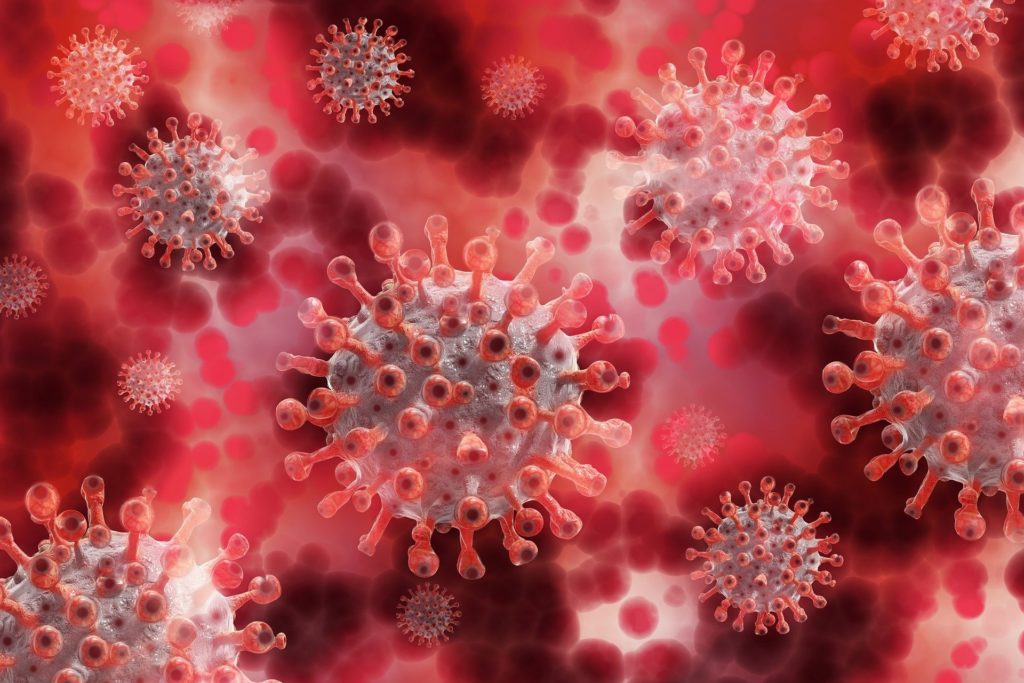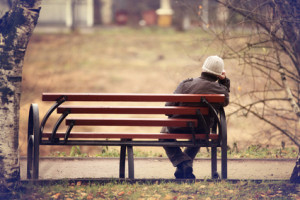
COVID-19 has touched every part of our globe and our lives. The pandemic will undoubtedly continue to impact our current and future way-of-life and greatly impact present and future generations. As frightening as it is, many of the impacts of COVID-19 on our lives have not yet been experienced. A recent study has delved into just that, exploring how COVID-19 will affect the mental health of those that have experienced the illness directly.
Past Knowledge
COVID-19 is the first of its strain; however, it is not the first coronavirus. COVID-19 is only the newest strain in a family of viruses so large that it is divided into four sub-groupings x alpha, beta, gamma, and delta.
Only 7 of the known coronaviruses can infect people (1). “Coronaviruses are negatively stranded RNA viruses, which cause infections ranging from common colds to severe acute respiratory syndrome (2).”
These viruses have been associated with “psychiatric symptoms, including post-traumatic stress disorder (PTSD), depression, panic disorder, and obsessive-compulsive disorder (OCD) at 1 to 50 months follow (2).” Coronaviruses have also been shown to induce possible neuronal injuries to the brain (2).
Finally, “‘cytokines storm’ is a severe immune reaction in which the body releases too many cytokines into the blood too quickly. In coronaviruses, this “may cause psychiatric symptoms by precipitating neuroinflammation (2).”
Current Concern of COVID-19 and Mental Health
 These results only apply to coronaviruses that were known and studied prior to the COVID-19 global pandemic. Obviously, seeing the psychopathological impact of previously known coronaviruses causes concern for those that have been diagnosed with COVID-19.
These results only apply to coronaviruses that were known and studied prior to the COVID-19 global pandemic. Obviously, seeing the psychopathological impact of previously known coronaviruses causes concern for those that have been diagnosed with COVID-19.
“Preliminary data suggest that patients with COVID-19 might experience delirium, depression, anxiety, and insomnia (2).”
Combine the already possible mental health diagnoses with the fear, trauma, isolation, and lifestyle changes brought on by the pandemic and COVID-19 treatment, quarantining, and/or hospitalization, and we could be seeing an incredible number of people battling mental health crises in the future.
Recent Study
The most recent study chose to look at the impact COVID-19 had on 402 patients that survived the illness at a one-month follow-up after treatment (2). The study found what was predicted based on past research – “high rates of PTSD, depression, anxiety, insomnia, and OC symptomatology (2).”
The study further determined that females and individuals with previous psychological diagnoses “suffered more in all psychopathological dimensions (2).”
Researchers noted that these psychological symptoms “can be caused by the immune response to the virus itself, psychological stressors such as social isolation, the psychological impact of a novel severe and potentially fatal illness, concerns about infecting others, and stigma (2).”
Ultimately, this information confirms what most of us already know – that the social and biological impact of COVID-19 on humans can cause great mental distress.
Continue to take this disease seriously, protect yourself and your loved ones, and check-in with those you care for, particularly if they have been diagnosed or treated.
Simply testing negative does not mean the impacts are over. Take care of one another in these challenging times.
Resources:
[1] Unknown (2020). Human coronavirus types. Centers for Disease Control and Prevention, retrieved from https://www.cdc.gov/coronavirus/types.html.
[2] Mazza, M. G. et al. (2020). Anxiety and depression in COVID-19 survivors: role of inflammatory and clinical predictors. Brain, Behavior, and Immunity.
About the Author:
 Margot Rittenhouse, MS, PLPC, NCC is a therapist who is passionate about providing mental health support to all in need and has worked with clients with substance abuse issues, eating disorders, domestic violence victims, and offenders, and severely mentally ill youth.
Margot Rittenhouse, MS, PLPC, NCC is a therapist who is passionate about providing mental health support to all in need and has worked with clients with substance abuse issues, eating disorders, domestic violence victims, and offenders, and severely mentally ill youth.
As a freelance writer for Eating Disorder Hope and Addiction Hope and a mentor with MentorConnect, Margot is a passionate eating disorder advocate, committed to de-stigmatizing these illnesses while showing support for those struggling through mentoring, writing, and volunteering. Margot has a Master’s of Science in Clinical Mental Health Counseling from Johns Hopkins University.
As a freelance writer for Eating Disorder and Addiction Hope and a mentor with MentorConnect, Margot is a passionate eating disorder advocate, committed to de-stigmatizing these illnesses while showing support for those struggling through mentoring, writing, and volunteering. Margot has a Master’s of Science in Clinical Mental Health Counseling from Johns Hopkins University.
The opinions and views of our guest contributors are shared to provide a broad perspective of addictions. These are not necessarily the views of Addiction Hope, but an effort to offer a discussion of various issues by different concerned individuals.
We at Addiction Hope understand that addictions result from multiple physical, emotional, environmental, and genetic factors. If you or a loved one are suffering from an addiction, please know that there is hope for you, and seek immediate professional help.
Published on October 14, 2020
Reviewed & Approved by Jacquelyn Ekern, MS, LPC on October 14, 2020
Published on AddictionHope.com
